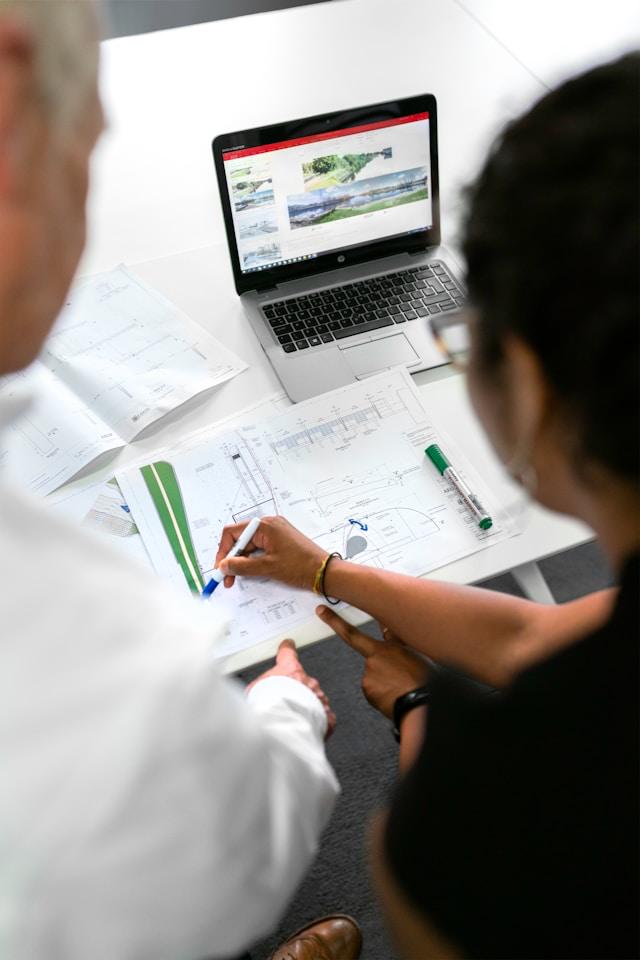10 Vital Tips to Consider When Looking to Streamline Project Management Processes

Streamlining project management processes is critical to the success of any project, no matter how large or complex. By streamlining workflows and eliminating inefficiencies, organizations can guarantee on-time delivery, better resource utilization, and increased client satisfaction. This post will discuss ten essential suggestions for streamlining project management procedures.
- Define Clear Objectives and Scope
Clearly outlining the goals and scope of a project is one of the fundamental tasks in project management. This entails stating the objectives and limitations that must be met for the project to proceed. Teams can avoid scope creep and synchronize their efforts by setting clear goals early on. Furthermore, a clearly defined scope aids in risk management and resource allocation, which eventually results in more efficient project execution.
- Implement Robust Communication Channels
Project success depends on effective communication, and streamlining project management procedures requires the implementation of strong communication channels. Facilitating open and transparent communication among team members improves collaboration, minimizes misunderstandings, and expedites decision-making. This can be achieved through several means, such as frequent meetings, project management software, or collaborative tools. Additionally, effective communication makes it easier to see problems early on and take action to resolve them, which improves project efficiency overall.
- Optimize Resource Allocation
Efficient resource allocation is paramount for productivity and minimizing waste. Regularly assessing resource availability and workload distribution ensures optimal team utilization. Utilizing professional services automation (PSA) tools can streamline resource management, enhancing project staffing. By leveraging these tools, project managers gain insights into resource allocation, enabling them to allocate tasks effectively, prevent overloading team members, and maintain project momentum. Efficient resource allocation ultimately contributes to project success and organizational efficiency.
- Foster Collaboration and Teamwork
Effective project management is fundamentally based on collaboration, and creating a culture of teamwork is critical to process simplification. Within project teams, productivity and innovation can be increased by fostering open communication, exchanging best practices and expertise, and encouraging cross-functional cooperation. Organizations can optimize workflows and improve outcomes by dismantling organizational silos and encouraging a sense of responsibility and accountability.
- Continuously Monitor and Evaluate Progress
Continuous monitoring and assessment are critical for finding bottlenecks, measuring Progress, and making necessary adjustments. Teams can learn more about the success and health of their projects by routinely monitoring key performance indicators (KPIs) and project metrics. This makes it possible for them to proactively handle problems, redistribute resources as necessary, and guarantee that the project continues in the direction of its objectives. Additionally, frequent review promotes efficiency and effectiveness in project management procedures by enabling learning and improvement.
- Prioritize Tasks and Resources
Project management processes must be optimized by properly allocating activities and resources in order of importance. Teams can guarantee timely and cost-effective completion of the most crucial tasks by identifying and assigning resources appropriately. In order to do this, judgments regarding where to concentrate efforts must be made after weighing the importance and urgency of various activities as well as the availability and limitations of resources. Setting priorities helps to ensure that resources are not overused or underutilized, optimizing efficiency and production.
- Foster a Culture of Continuous Improvement
Adopting a culture of continuous improvement is critical for optimizing project management operations in the long term. Organizations can adjust to changing opportunities and challenges by embracing feedback, applying lessons learned from the past, and executing iterative improvements. Teams can discover novel approaches to streamline processes, improve cooperation, and produce superior results by cultivating an innovative and experimental mentality. Project management procedures are kept flexible and adaptable in the face of change through continuous improvement.
- Ensure Stakeholder Alignment and Engagement
Project success depends on stakeholder alignment and participation, and project management procedures can be streamlined by fostering effective stakeholder collaboration and communication. Through early stakeholder involvement in the project lifecycle, clear expectations, and input and feedback solicitation, teams can reduce miscommunication and conflict and obtain important information that can guide decision-making. Additionally, including and informing stakeholders at every stage of the project encourages a sense of ownership and dedication, which facilitates execution and increases satisfaction.
- Proactively Manage Risks and Issues
Project management is not complete without risk management, and process simplification requires proactively detecting, evaluating, and reducing risks. Teams can reduce the impact of unfavorable occurrences and maintain project momentum by carrying out comprehensive risk assessments, foreseeing possible problems, and creating backup plans. Establishing a culture of risk awareness and resilience also enables teams to adapt well to unforeseen obstacles, guaranteeing project success even in the face of uncertainty.
- Foster a Culture of Accountability
Streamlining project management procedures depends on ensuring accountability at all organizational levels, which is crucial for achieving results. Organizations can cultivate a culture of ownership and commitment by establishing roles, responsibilities, and expectations explicitly and by holding team members and stakeholders accountable for their actions and deliverables. This fosters openness, confidence, and cooperation and makes it possible for groups to cooperate in the pursuit of shared objectives, which eventually results in more effective and efficient project management.
Conclusion
Achieving project success and providing value to stakeholders requires streamlining project management procedures. Through adherence to the ten essential guidelines presented, entities can streamline their processes, augment cooperation, and elevate project results. By following these methods, businesses can improve their project management processes and yield better results. These tactics range from setting clear objectives and scope to cultivating a culture of continuous improvement.





